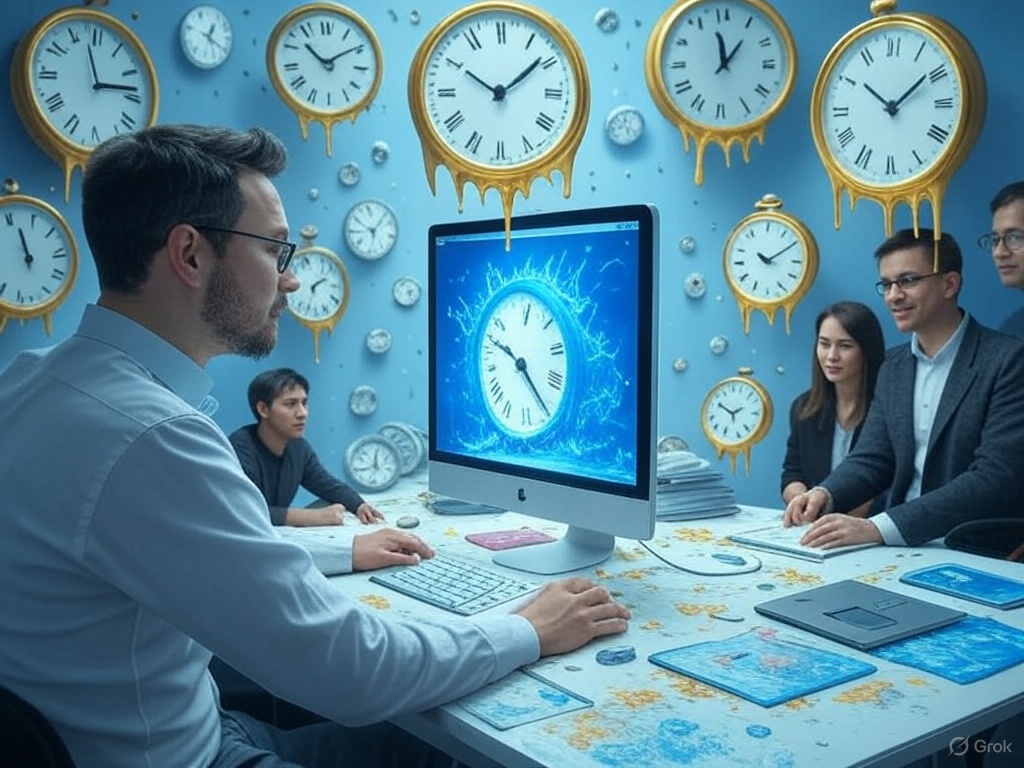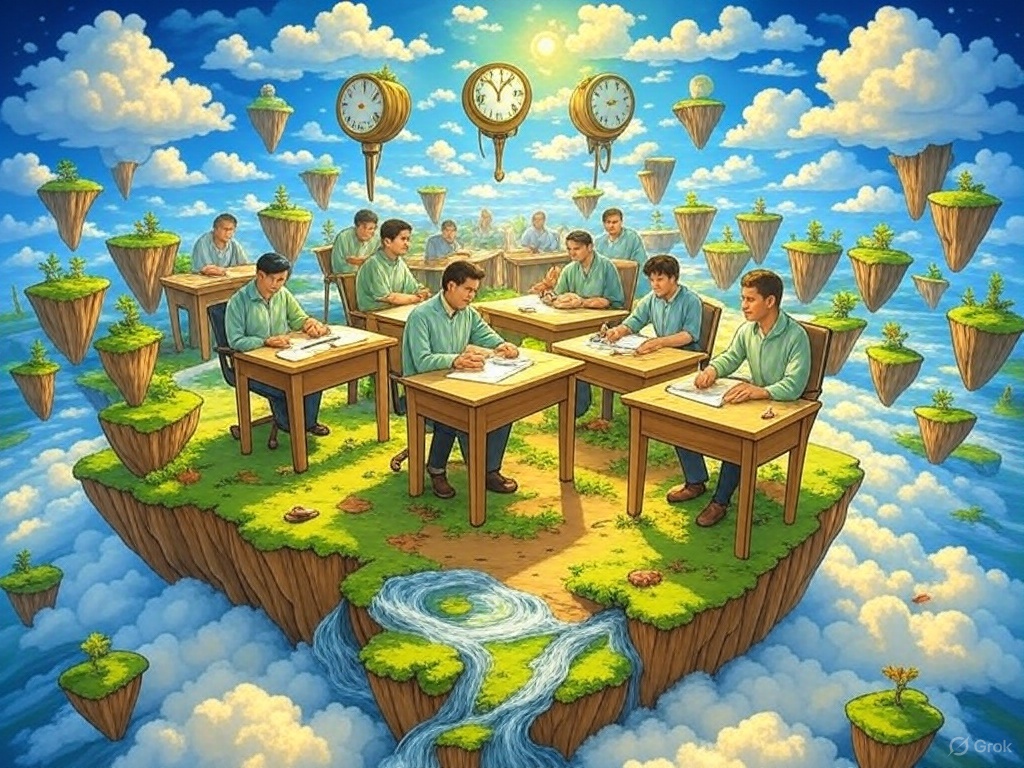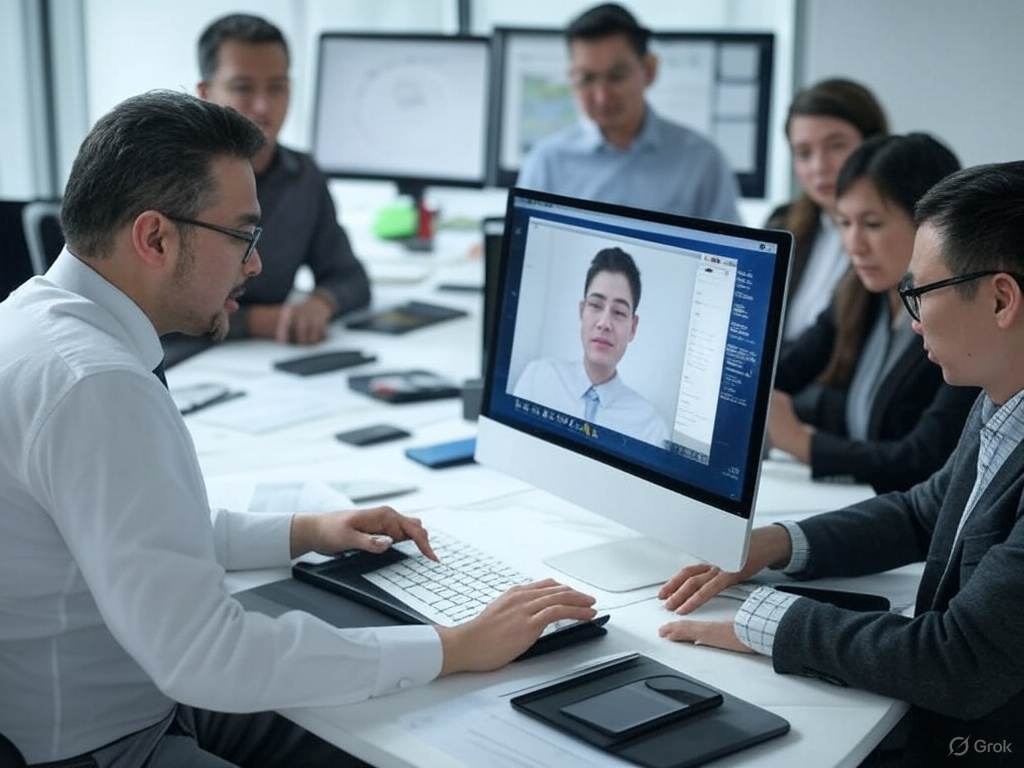Hello!
In the past fifty years, the global economy has undergone a seismic transformation, one so profound it’s reshaped the very nature of wealth and value.
 Half a century ago, prosperity was measured in steel, oil, and machinery — tangible assets that powered industries and filled corporate balance sheets. Back then, roughly 90% of the assets held by S&P 500 companies were physical: factories, raw materials, vehicles, and inventory.
Half a century ago, prosperity was measured in steel, oil, and machinery — tangible assets that powered industries and filled corporate balance sheets. Back then, roughly 90% of the assets held by S&P 500 companies were physical: factories, raw materials, vehicles, and inventory.
Today, the script has flipped. Around 90% of assets are now intangible, encompassing intellectual property, software code, digital content, professional networks, and specialized knowledge.
This shift isn’t just a trend—it’s a revolution that’s redefined the rules of the economic game.
The Rise of the Intangible
 To grasp the scale of this change, consider what businesses valued in the 1970s.
To grasp the scale of this change, consider what businesses valued in the 1970s.
A company’s worth was tied to its physical output—think car manufacturers with sprawling assembly lines or consumer goods giants churning out soap and cereal.
Balance sheets were heavy with equipment and stockpile counts. Fast forward to 2025, and the titans of industry are tech firms, media platforms, and service providers whose primary assets can’t be touched or stored in a warehouse.
Patents fuel pharmaceutical breakthroughs, algorithms drive trillion-dollar tech empires, and brand loyalty shapes consumer behavior. Even relationships—networks of trust and influence—are now critical capital.
This pivot to intangibles reflects broader technological and cultural shifts. The digital age has elevated ideas over objects. A single piece of software can scale infinitely without the constraints of physical production. A viral marketing campaign can generate more value than a factory’s output.
Knowledge, once confined to dusty manuals, now flows instantly across global teams, creating competitive edges that physical assets can’t match.
Also read:
- The End of Manual Labor: How Humanoid Robots Are Reshaping the Workforce
- The Economy is Not Broken. It Was Built to Funnel Wealth Upwards
- Who Is the Current King of the Darknet?
Why Intangibles Dominate
 Several forces have propelled this intangible economy to dominance. First, technology has slashed the cost of creating and distributing non-physical goods. Writing code or designing a digital product requires minimal resources compared to building a factory.
Several forces have propelled this intangible economy to dominance. First, technology has slashed the cost of creating and distributing non-physical goods. Writing code or designing a digital product requires minimal resources compared to building a factory.
Second, globalization has amplified the value of relationships and networks. A startup in Singapore can collaborate with experts in Silicon Valley or tap markets in São Paulo, all without moving a single crate.
Third, consumer preferences have shifted toward experiences and services—think streaming platforms or personalized apps—over physical products.
Intellectual property, in particular, has become a cornerstone. Companies like Apple or Pfizer don’t just sell phones or drugs; they sell ecosystems built on patents, designs, and proprietary research.
Similarly, content—videos, blogs, or social media posts—drives engagement and revenue for businesses ranging from influencers to multinationals. Meanwhile, knowledge workers, armed with expertise, are often a firm’s most valuable resource, their insights shaping strategy and innovation.
Challenges of an Intangible World
 This new economy, while dynamic, brings unique challenges. Unlike physical assets, intangibles are harder to measure and protect. How do you quantify the value of a brand’s reputation or a team’s collective know-how?
This new economy, while dynamic, brings unique challenges. Unlike physical assets, intangibles are harder to measure and protect. How do you quantify the value of a brand’s reputation or a team’s collective know-how?
Intellectual property disputes can drag on for years, as seen in high-profile patent battles between tech giants. Moreover, intangible assets are vulnerable to rapid obsolescence—today’s cutting-edge algorithm could be outdated by next year’s breakthrough.
Another hurdle is the mindset gap. Many organizations, governments, and individuals still operate with a tangible-asset worldview, prioritizing physical infrastructure over digital or human capital.
Tax systems, for instance, often lag behind, struggling to account for profits generated by intangible goods across borders. Similarly, workers trained for industrial-era jobs may find their skills misaligned with a market that rewards creativity and adaptability.
Also read:
- Humanity's Last Test
- Pentagon's Project to Create "Mutant Soldiers" Through Red Blood Cell Modification
- No News from the US: War Enters Dull Phase, Enemies Identified, Lines Drawn, Artillery Preparation and Reconnaissance Underway
Opportunities in the New Game
 Despite these challenges, the intangible economy offers immense opportunities. For businesses, investing in research, talent, and digital tools can yield outsized returns. A single patent can launch a startup to unicorn status; a well-crafted social media strategy can turn a small brand into a global phenomenon.
Despite these challenges, the intangible economy offers immense opportunities. For businesses, investing in research, talent, and digital tools can yield outsized returns. A single patent can launch a startup to unicorn status; a well-crafted social media strategy can turn a small brand into a global phenomenon.
For individuals, the premium is on lifelong learning and relationship-building. Expertise in niche fields or a robust professional network can open doors that physical credentials alone cannot.
Governments, too, have a role to play. Policies that foster innovation—through education reform, intellectual property protections, or digital infrastructure—can position nations as leaders in this new landscape. Countries like Estonia, with its e-governance and tech-friendly policies, show how embracing intangibles can drive prosperity.
Also read:
- The Concept of Consciousness Uploading into Digital Form
- The Rise of Awakened Pawns: Powerless but Provoking Unpredictable Outcomes
- Most Will Not Gain Access to the "Highest" Level
Playing by New Rules
 The intangible economy isn’t coming—it’s already here. Yet, too many of us are playing by outdated rules, tethered to assumptions that no longer apply. Success in this era demands a rethink: valuing ideas as much as objects, relationships as much as resources, and adaptability as much as stability.
The intangible economy isn’t coming—it’s already here. Yet, too many of us are playing by outdated rules, tethered to assumptions that no longer apply. Success in this era demands a rethink: valuing ideas as much as objects, relationships as much as resources, and adaptability as much as stability.
Companies that hoard physical assets while neglecting innovation risk obsolescence. Workers who fail to cultivate skills or networks may find themselves sidelined. And societies that ignore this shift could miss out on the wealth of the future.
As we navigate this invisible frontier, one thing is clear: the game has changed. Wealth today lies not in what we can touch, but in what we can imagine, create, and connect. The question is whether we’re ready to embrace it.
This article explores the shift to an intangible economy, aligning with the provided theme, and offers a fresh perspective with new examples and insights, ensuring it’s engaging and comprehensive.
Thank you!
Subscribe to our newsletter! Join us on social networks!
See you!






